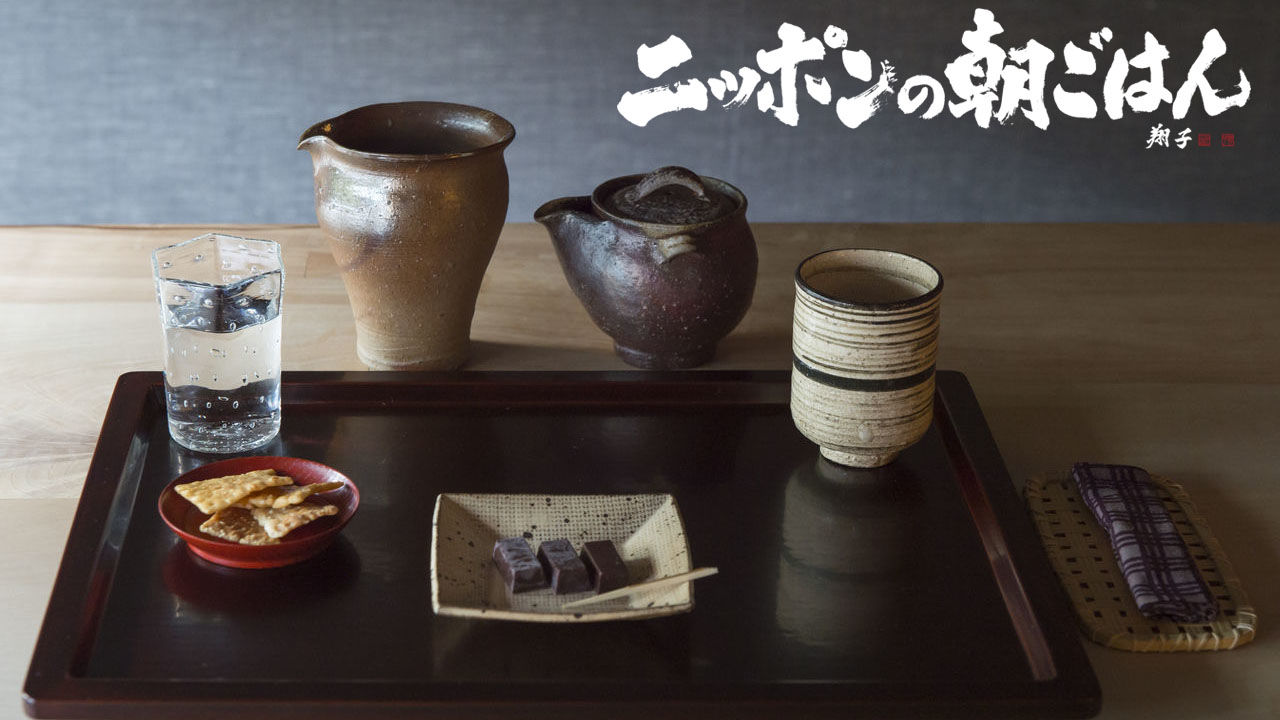
Breakfast Around Japan: A Culinary Adventure
Morning Tea at Kyoto’s Tearoom Tōka
Guideto Japan
Food and Drink Lifestyle Travel- English
- 日本語
- 简体字
- 繁體字
- Français
- Español
- العربية
- Русский
Menu
- Tea: Green tea (sencha), hōjicha, or verveine (lemon verbena) tea
- Organic chocolate
- Okaki (rice crackers)
- Water
In a quiet residential neighborhood bordering the east side of the Kyoto Imperial Palace stands a splendid 100-year-old house built for nihonga painter Nishimura Goun (1877–1938). Flanked by stately pines, a moss garden, and an old plaster-walled storehouse, the wood-framed residence is a classic example of traditional Japanese design and carpentry. But innovation lives here alongside tradition. In 2016, the property was reborn as Nichinichi/Tōka—featuring a gallery, tearoom, and "artist's residence"—under the ownership and artistic direction of food design and development consultant Okumura Fumie and her German husband Elmar Weinmayr. Our destination today is Tearoom Tōka, which opens at ten for morning tea.
At this time of day, Tōka offers a welcome respite from the bustle of Kyoto tourist traffic.
The tearoom is a model of refined minimalism, consisting of little more than a long natural-wood counter (made of tochi, or Japanese horse chestnut) and a half-dozen elegantly simple, finely crafted chairs, from which customers can observe close up the slow, deliberate process of brewing a first-rate cup of tea.
The green tea is amazingly rich and smooth in flavor. The depth and complexity increases with each successive infusion, as the tea leaves release their aroma and flavor into spring water heated to just the right temperature.
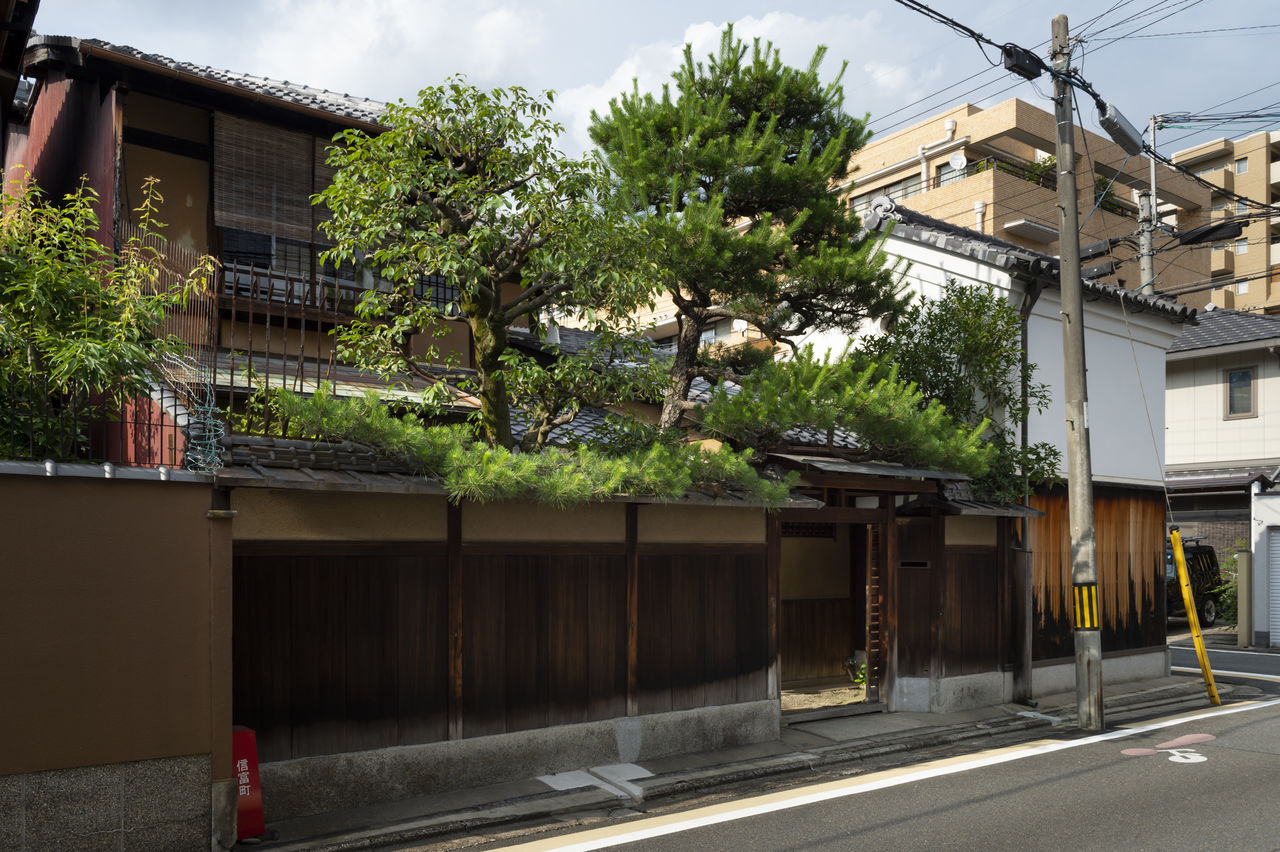 Gallery Nichinichi and Tearoom Tōka viewed from the street.
Gallery Nichinichi and Tearoom Tōka viewed from the street.
 The tearoom is on the left as one enters the elegant Japanese-style residence, which also houses Gallery Nichinichi.
The tearoom is on the left as one enters the elegant Japanese-style residence, which also houses Gallery Nichinichi.
Another pleasant surprise is the sweet accompaniment to the tea: chocolate made from organic cacao beans grown on the Hawaiian island of Kauai. The earthy notes of cacao (as it is sometimes known) pair unexpectedly well with the mildly astringent green tea. The okaki rice crackers—salted with typical Kyoto restraint—welcome the taste buds back to more familiar territory.
“Simply drinking tea can lead to such exciting discoveries,” says Okumura. “I want to share that rewarding experience as widely and deeply as possible.”
The morning tea brewed at Tōka is in a category of its own, quite distinct from tea as a breakfast beverage. Imbibed in silence and tranquility, it supplies the spiritual and physical energy to face the rest of the day.
Tea: Green tea (sencha), hōjicha, or verveine (lemon verbena) tea
Tōka blends its sencha (green leaf tea) from about a dozen different varieties of organic tea, all grown in Asamiya (Kōka, Shiga Prefecture), an area whose relatively warm days, cold nights, and frequent fogs support cultivation of high-quality tea. Asamiya tea is said to have its origins in the seeds first brought to Japan from China by the Buddhist monk Saichō (767–822). Among the tearoom’s most popular sencha offerings is its Asamiya Blend, a combination of three cultivars: Yabukita, Saemidori, and the rare early-sprouting cultivar Asatsuyu.
Shincha (“new tea”) arrives in late May, and for a brief time each year, tea lovers can savor the fresh taste of the first spring harvest. In 2018, Tōka featured three premium shincha varieties: Yabukita tezumi, made from just the top three leaves hand-picked from each stem; Zairai, a local heirloom variety; and Asatsuyu, a cultivar that has grown scarce in recent times despite a flavor and aroma that have earned it the epithet “natural gyokuro.”
Hōjicha is a roasted tea with a distinctive rich aroma. Tōka offers two varieties. One is bōcha made from thick stems cut in the spring, before the leaves sprout, and again in the autumn, following the summer harvest. The other is made from aged Yabukita tea leaves harvested from plants grown without fertilizer. Both are highly aromatic, rich in vitamins and potassium, and virtually caffeine-free.
Verveine tea is made from lemon verbena, an herb native to South America. In the south of Germany, Weinmayr, a homeopath, made the acquaintance of a woman who has dedicated her life to verveine, growing it according to strict biodynamic farming standards (more rigorous even than organic farming) and hand-picking the leaves one by one to lock in the fragrance. Verveine is said to aid digestion and promote relaxation.
Organic chocolate
Tōka’s chocolate is made from organic cacao beans, grown on the island of Kauai without the use of pesticides or chemical fertilizers and fermented through the action of naturally occurring yeast. It is flavored with organic sugar and vanilla bean, with no other ingredients added. The taste and aroma vary distinctly according to the cacao cultivar and the growing environment.
Okaki (rice crackers)
These crispy, fragrant, lightly salted rice crackers are made by a Kyoto artisan who pounds his own rice cakes (mochi) from premium Kogane-mochi glutinous rice, sun-dries the rice cakes, and hand-roasts them over a charcoal fire.
Water
Tōka is located over a water vein connecting two famous local springs, those of Nashinoki Shrine to the north and Shimogoryō Shrine to the south. The tearoom uses well water drawn each morning at Shimogoryō Shrine for its tea as well as its drinking water.
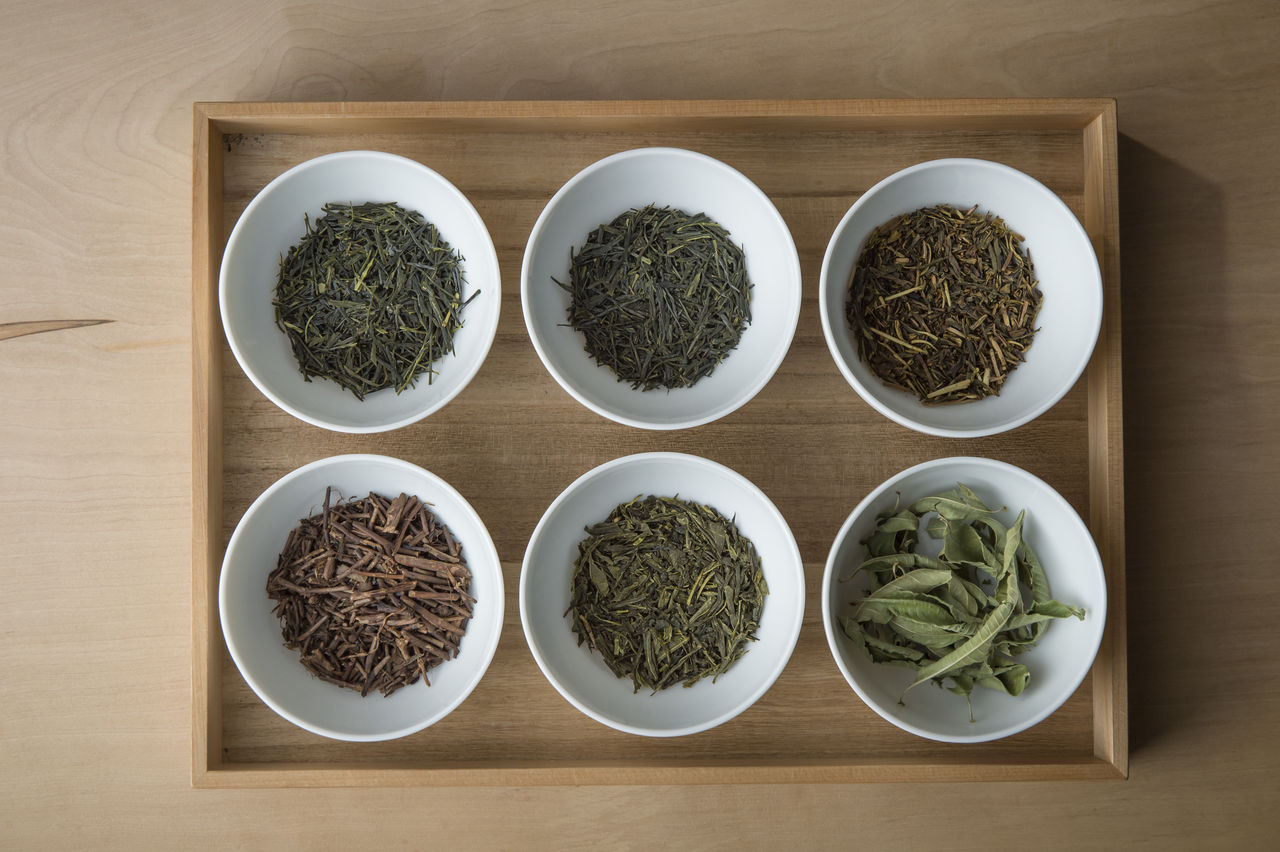 Tōka provides samples of tea leaves that customers can compare before ordering.
Tōka provides samples of tea leaves that customers can compare before ordering.
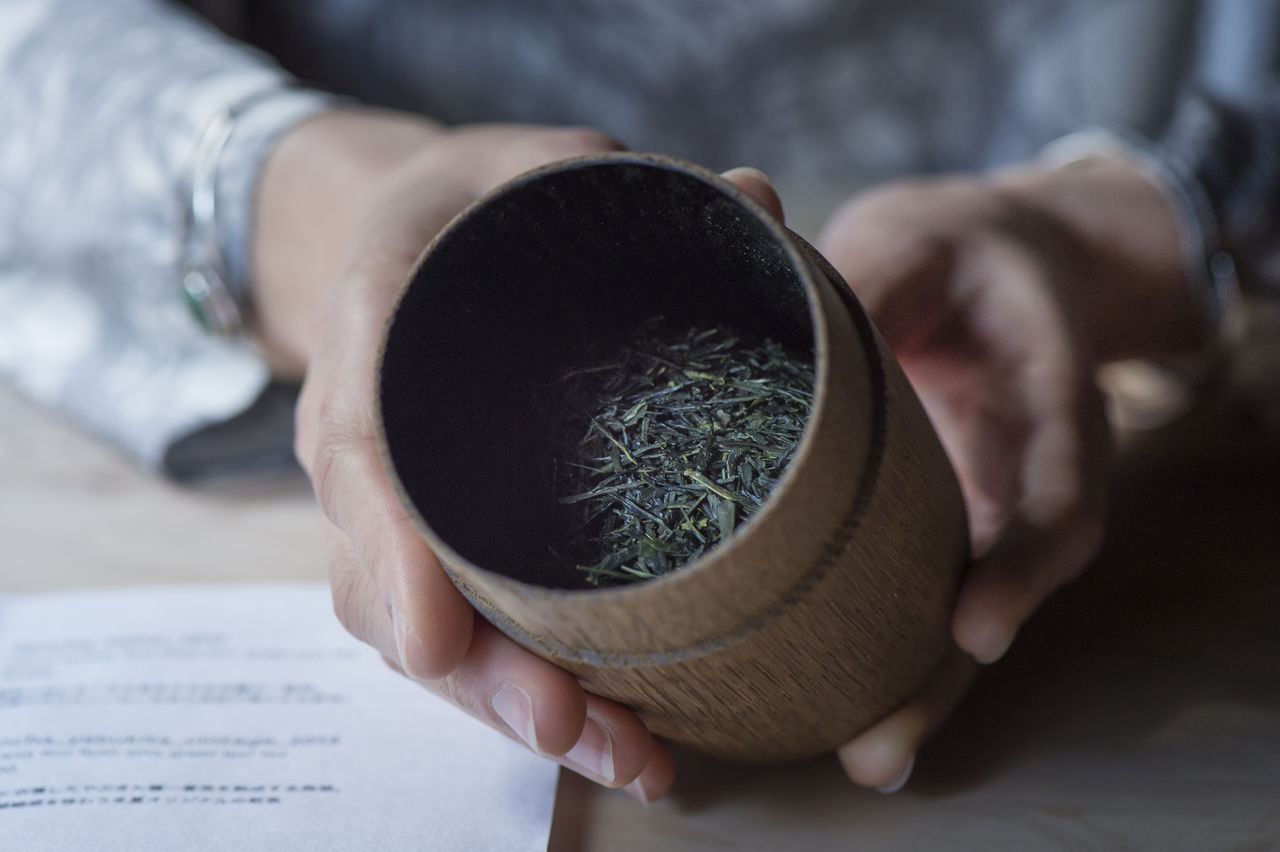 They can also sniff the leaves in their tea caddy.
They can also sniff the leaves in their tea caddy.
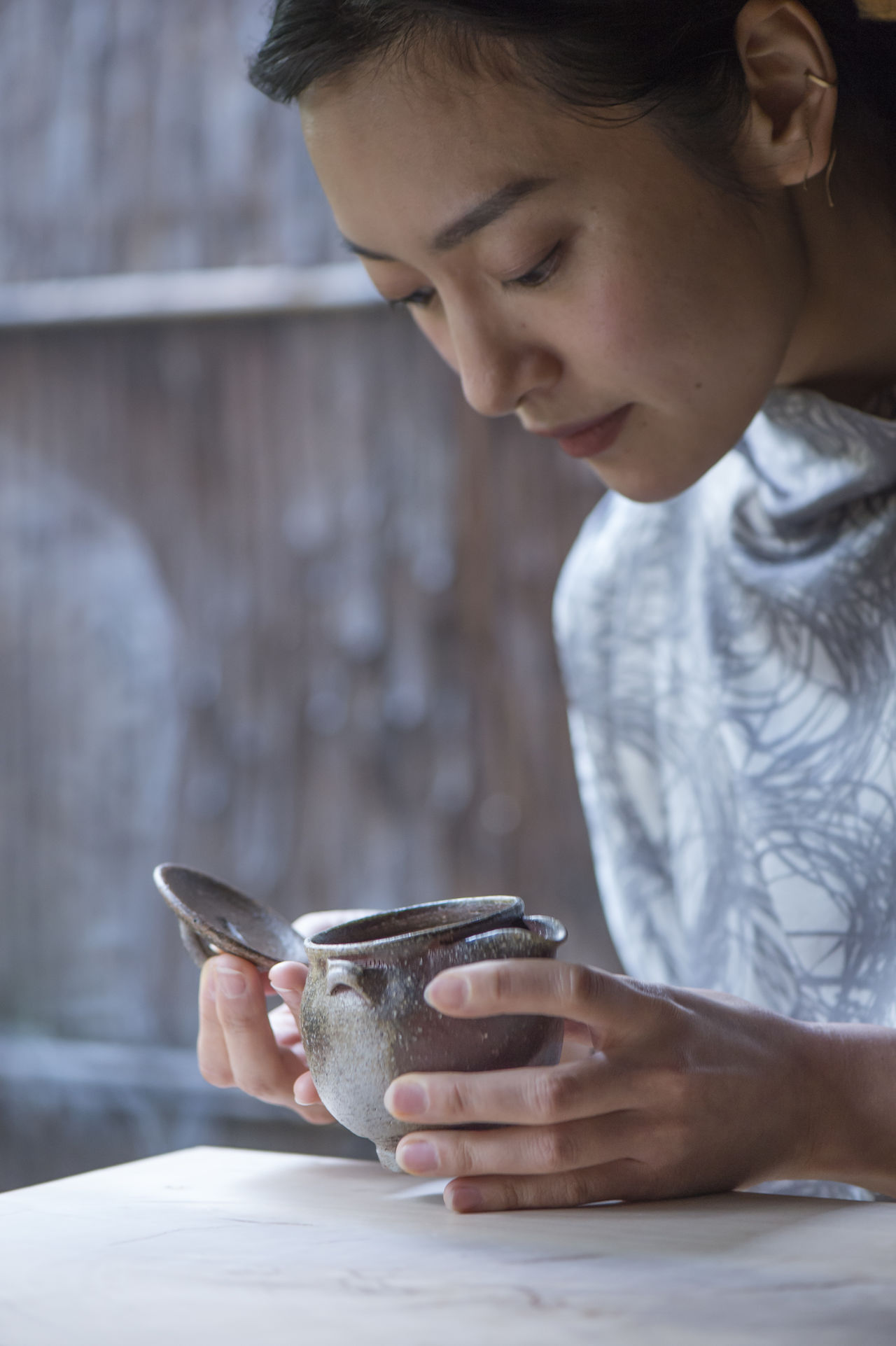
The barista carefully checks the temperature of the water . . .
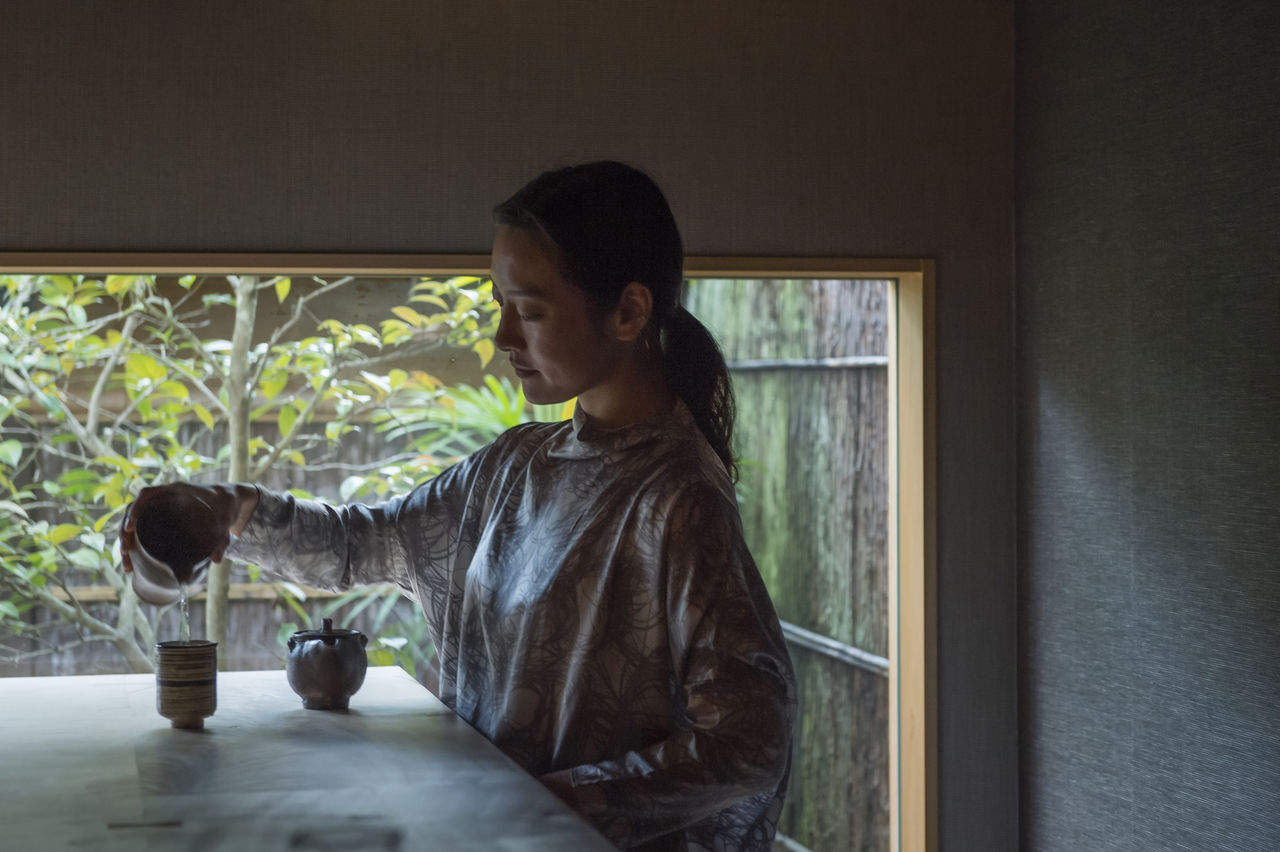 . . . and brews the tea slowly and deliberately.
. . . and brews the tea slowly and deliberately.
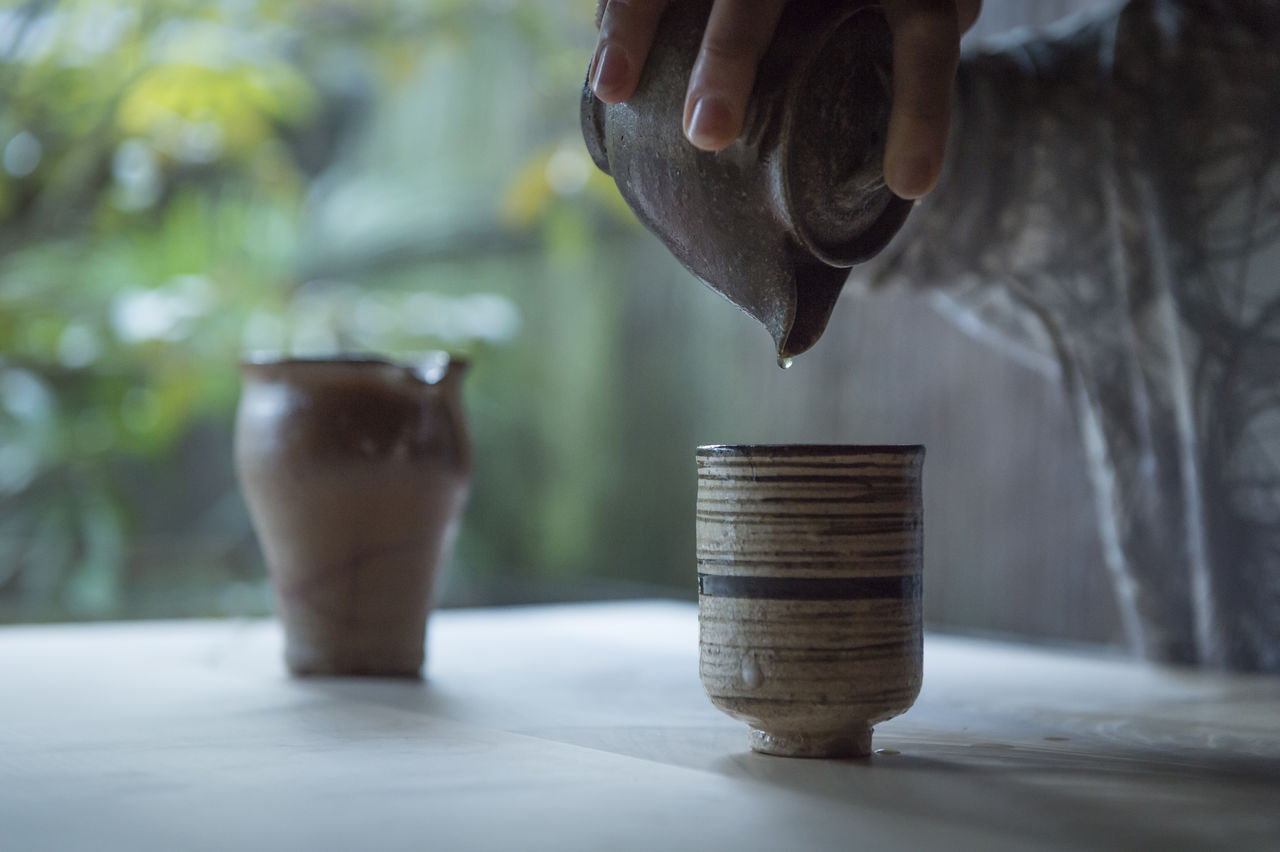 The last drop of tea in the pot is considered the best.
The last drop of tea in the pot is considered the best.
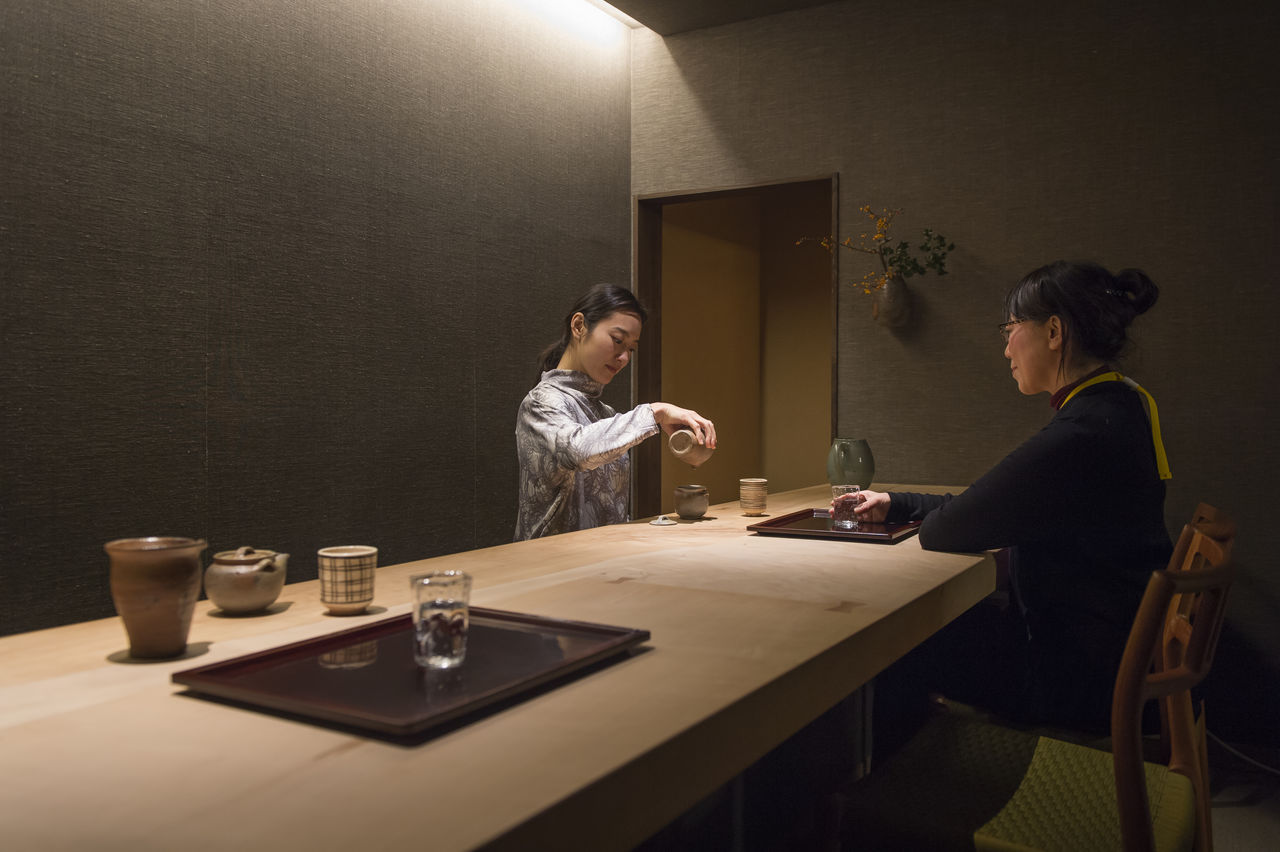 A quiet, contemplative spot for mid-morning respite.
A quiet, contemplative spot for mid-morning respite.
Tōka
Address: 298 Shintomichō, Kamigyō-ku, Kyoto, 602-0875, Kyoto Prefecture
Phone: +81-(0) 75-254-7533
Website (in Japanese only): https://www.tokaseisei.com/
Hours: 10:00 am to 6:00 pm. Closed on Tuesdays.
(Originally written in Japanese. Photos by Kusumoto Ryō. Series title written by Kanazawa Shōko.)
Related Tags
Kyoto tourism food Breakfast Around Japan: A Culinary Adventure Kansai tea
